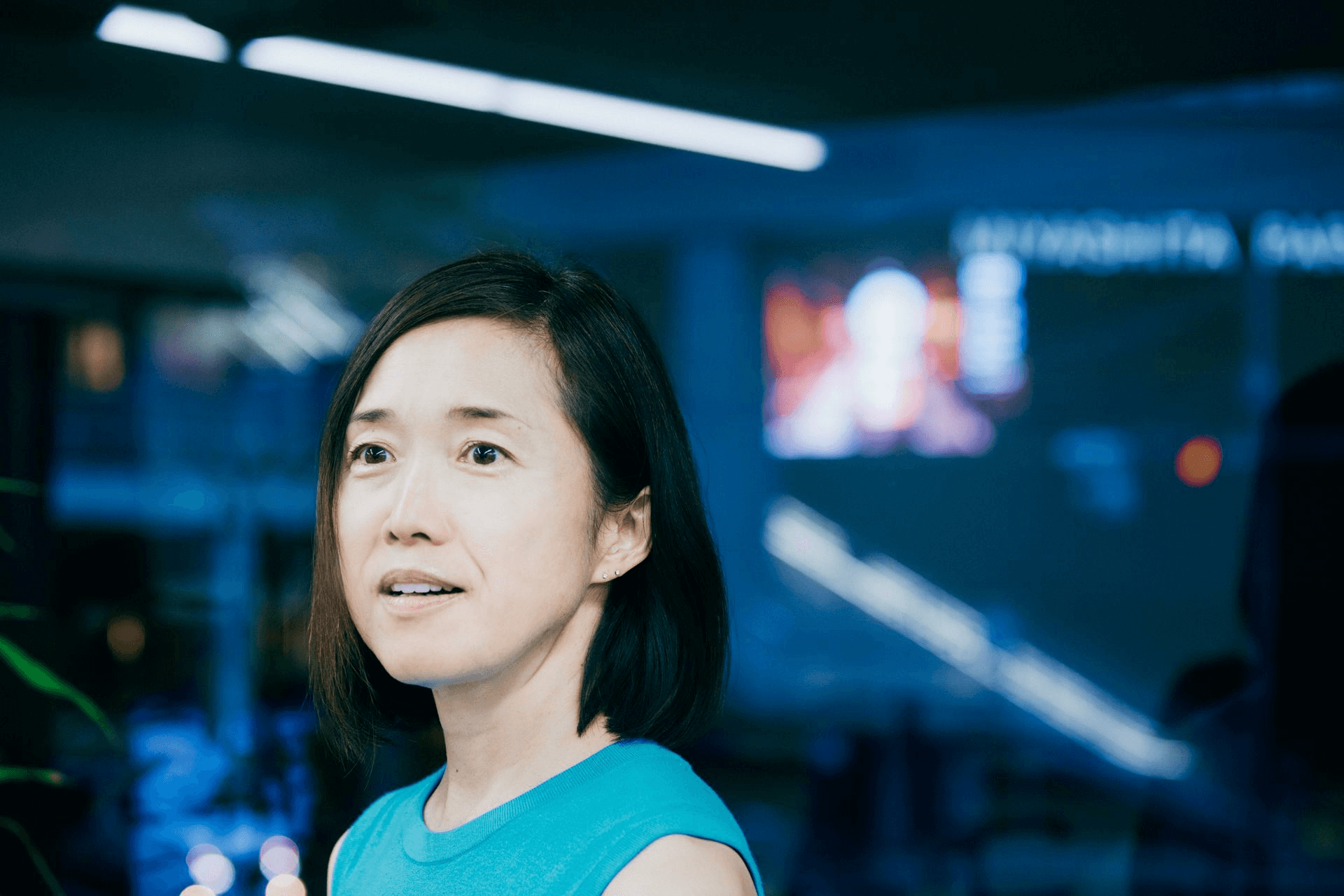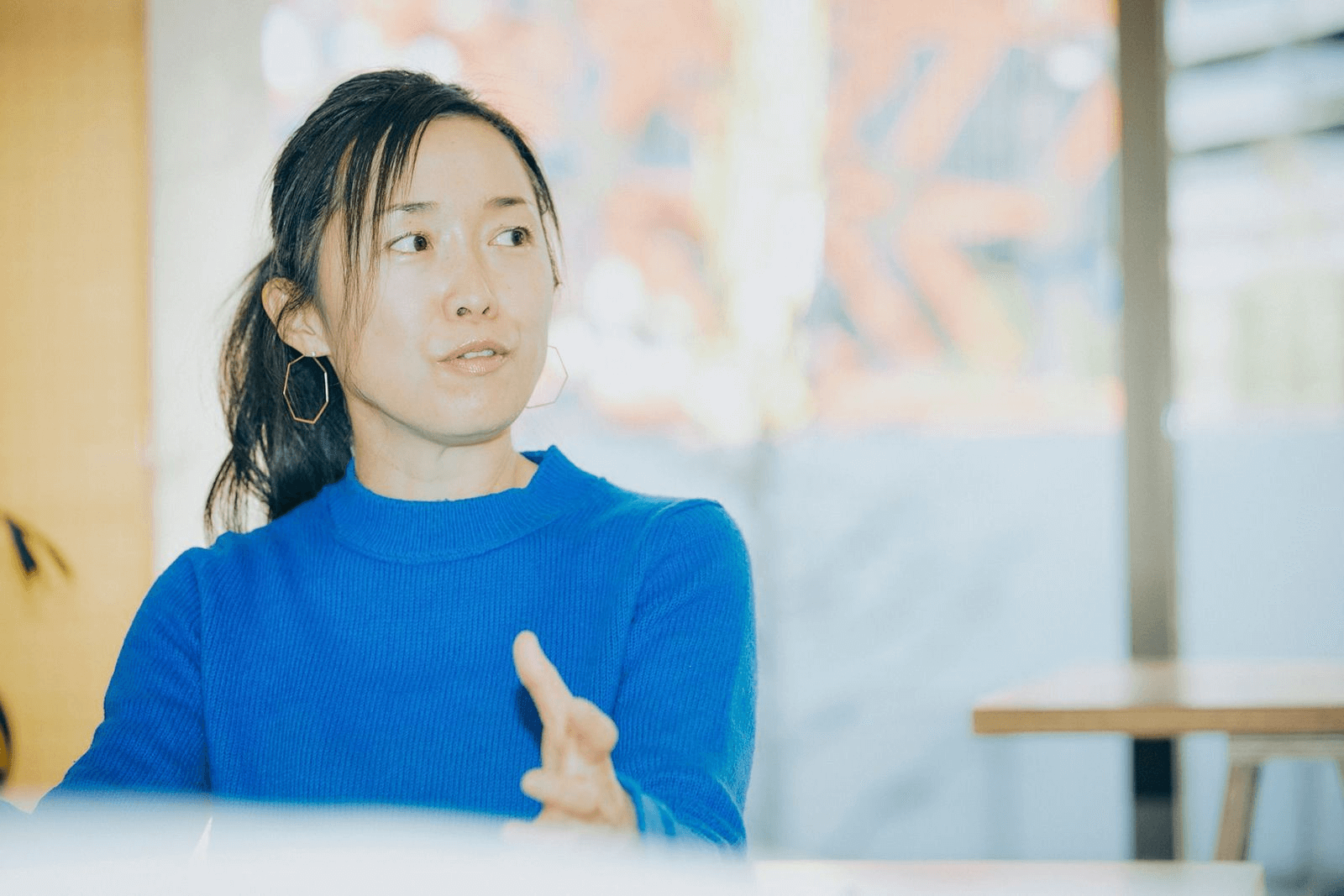
Author: Zen, PANews
Since the beginning of this year, Aya Miyaguchi, executive director of the Ethereum Foundation, has become the focus of community discussion. Some opponents have called for a change in the foundation's leadership, and some have even made malicious threats to her online. On the other hand, her supporters believe that Miyaguchi has been promoting the decentralization and long-term development of the foundation since she took office in 2018.
Regardless of criticism or praise, it is undeniable that Aya Miyaguchi, who has more than ten years of experience in both education and the crypto industry, has taken a unique path. Her story is not conventional: from a high school teacher in Japan to entering the cryptocurrency industry; from an educator in the classroom to an evangelist in the crypto industry, and then to becoming the leader of the Ethereum Foundation. She constantly crosses fields and changes her identity.
From a "passionate teacher" to a "pioneer" in the cryptocurrency industry
Aya Miyaguchi was a high school teacher in Japan. She is also known as a "passionate teacher" because of her love and passion for teaching. She especially likes to design creative teaching methods and stories for students to inspire their independent reflection, criticism and exploration spirit.
"Like many other young teachers, I felt uneasy about entering the teaching profession right after graduating from university." After working in the education industry for more than ten years, Miyaguchi was tired of just teaching textbook knowledge. She hoped to guide students on how to think independently and learn and grow as a "complete person."
When she was a teacher, Miyaguchi often taught her students to go abroad at least once in their lives. She also realized that as a teacher, she also needed to see the outside world or try other professional experiences. Miyaguchi then quit her job and went to the United States to pursue a master's degree in business. It was during that period that Miyaguchi's life began to intersect with blockchain and cryptocurrency.

Miyaguchi started to get involved in Bitcoin in 2011. As a person with a non-technical background, it took her a long time to really understand the concept of Bitcoin. After a deep understanding of the main advantages of Bitcoin, Miyaguchi believes that it has great potential in financial inclusion and social impact. When studying for an MBA, Miyaguchi's research focused on sustainable business. She also likes to study microfinance, especially how to enable women in developing countries to achieve economic independence. Miyaguchi is increasingly convinced that Bitcoin can play a big role in this regard.
Jesse Powell, the founder of Kraken, one of the oldest cryptocurrency exchanges, was the first person to officially bring Miyaguchi into the industry. During their communication, she was impressed by the potential of emerging technologies, especially the possibility of blockchain for financial inclusion, socioeconomic inequality and human coordination. Miyaguchi joined Kraken in 2013, when Kraken had just started recruiting and had very few team members. Miyaguchi was initially responsible for Kraken's business in Japan, and later became the managing director of Kraken Japan.
In 2014, just as Miyaguchi and Kraken were starting to do business in Japan, Mt. Gox, then a leading exchange, collapsed. Once the scandal became known, the news spread like wildfire, and Bitcoin and Mt. Gox entered the public eye due to various negative reports. The first impression of Bitcoin in Japan was full of panic and distrust.
Therefore, Miyaguchi had to take action. She took the initiative to contact the government department responsible for studying Bitcoin and related regulatory matters at the time, and introduced her background to them and explained her relevant experience in the field. She also worked with the self-regulatory organization "Digital Asset Transfer Authority" (DATA) to prompt the Japanese government to decide not to regulate the cryptocurrency industry at the time, and the relevant meeting became the starting point of regulatory discussions. Miyaguchi also co-founded the Japan Authority of Digital Assets (JADA) and participated in many in-depth discussions on regulation afterwards, which eventually led to Japan's cryptocurrency regulatory framework launched in 2017.
Joining Ethereum: Coordinating community, projects, and funding management
In February 2018, Miyaguchi's career once again ushered in a major turning point. She accepted the invitation of Ethereum founder Vitalik Buterin and officially joined the Ethereum Foundation as an executive director. The Ethereum Foundation was established in 2015 and is an organization aimed at promoting the research, development and application of Ethereum. It also supports community activities to promote the development of Ethereum. Miyaguchi is mainly responsible for coordinating and organizing the activities of the foundation, including internal affairs, as well as cooperation with community members, such as conducting education and holding events.
In fact, Miyaguchi and Vitalik had known each other as early as 2013. After entering Kraken, Miyaguchi met Vitalik, who was only 19 years old at the time. The latter was writing articles for Bitcoin Magazine and was busy promoting the white paper of Ethereum. For Miyaguchi, this meeting was an important turning point. She later realized that the potential of Ethereum was far beyond her imagination.
Ethereum is not only capable of Bitcoin-style financial transactions, but more importantly, it can bring revolutionary changes to non-financial fields. Through smart contracts and decentralized applications (DApps), Ethereum can provide support for new governance models, environmental solutions, and education systems. These ideas deeply touched Miyaguchi, who believed that if Ethereum could realize the ideas in the white paper, it would change the world. So when Vitalik offered her an olive branch, Miyaguchi quickly agreed and decided to devote herself to Ethereum and become a member of its core team.

The open source nature of Ethereum means that more and more contributors come from the community, and the rapid increase in these external contributors makes it increasingly difficult to coordinate internal and external work. As the largest blockchain ecosystem, the Ethereum community is very broad and can be anyone who does things on Ethereum, including individuals, organizations, companies, EEA (Ethereum Enterprise Alliance), etc.
When Miyaguchi joined, the foundation was in a relatively difficult stage. When she first arrived at the foundation, Miyaguchi faced huge challenges. The work of the Ethereum Foundation is not only about technical research and development, but also about coordinating the community, promoting project funding and fund management. Miyaguchi's goal is to communicate with as many different groups as possible to ensure that the development of Ethereum is the result of multi-party cooperation. She once said: "Our role is more like a coordinator than a manager. Our goal is to promote the overall development of Ethereum, rather than monopolize the work."
Ethereum and the Infinite Garden
Perhaps because she can't let go of her passion for being a teacher, Miyaguchi, who used to be a "gardener" on campus, likes to compare Ethereum to an "infinite garden". This metaphor comes from James P. Carse's book "Finite and Infinite Games". In her opinion, Ethereum is not only a technical project, but also an "infinite game". In a "finite game", the player's goal is to win the game; while in an "infinite game", the player's goal is to keep playing and continue to promote progress. In her mind: "Ethereum's mission is not to quickly obtain short-term benefits, but to promote the popularization and development of decentralized concepts in the long run."
The metaphor of "garden" also has a deeper meaning. In Miyaguchi's view, the Ethereum community is like a national natural park, not a carefully manicured garden. It is full of diversity and vitality. Although there are sometimes some radical voices or strange ideas, these can also be the source of new ideas. Just like the ecosystem in nature, the decentralized Ethereum ecosystem also needs to maintain this diversity and inclusiveness.
In the development of Ethereum, Miyaguchi has always emphasized that decentralization is not only a technical challenge, but also a change in mindset. She believes that the value of decentralization is not only reflected in the financial field, but also in all aspects of society. Many people have not yet realized that the privacy risks, data monopoly, and abuse of power brought about by centralization have penetrated into our lives. The decentralized thinking advocated by Ethereum can enable us to fundamentally re-examine the social structure and change our relationship with others and technology.
The Ethereum Foundation’s Decentralization Myth
In an earlier interview, Miyaguchi said that questions about how the foundation should operate and what the foundation's functions should be should be discussed internally. But as for how the technology is used, or how governance should work, these should not be decided by the foundation or Vitalik. "As an individual who has made a lot of contributions to Ethereum, he also has his own opinions. But as I said, this should not be decided by anyone in the foundation. Foundation members can certainly have their own opinions and prefer a certain option, but when it comes to governance decisions, the final decision should not be made by the foundation."
However, as a decentralized project, the lack of transparency and community participation in major decisions such as personnel appointments and dismissals has long been criticized. Ming Chan, the executive director before Miyaguchi, was criticized in the Ethereum community for being too controlling, opaque, and not effectively establishing an organizational structure. Miyaguchi was directly invited internally and took office after being "interviewed" by Vitalik and the researchers and developers in the team.

Miyaguchi has also responded to questions about this recruitment process. In her opinion, the foundation can certainly adopt an open approach and let the community decide. "If community members think this is the best way and make such a suggestion, that's fine." But at the same time, this process involves not only the community, but also the internal organizational management of the foundation. They need someone with global work experience and long-term experience in the crypto field, and I was told that they think I meet these conditions. "So although the process is not public, I think it's also a good idea to let the community decide."
Recently, in an unofficial on-chain vote participated by Ethereum community members, Danny Ryan, a former core researcher of the Ethereum Foundation, received 99.98% absolute support and was elected as the next head of the foundation. Joseph Lubin, CEO of Consensys and co-founder of Ethereum, also suggested that Danny Ryan and Jerome de Tychey, president of ETH France, jointly lead the EF to enhance technical orientation and vitality.
Danny Ryan was a core researcher at the Ethereum Foundation and played an important role in key upgrades such as Proof of Stake (PoS) and The Merge. When Miyaguchi was at the center of controversy earlier this year, Ryan called for an end to the "mob-style criticism" against her. Ryan said that no matter what role he plays in the future of Ethereum, he respects and recognizes Miyaguchi's leadership, and said that she has a far-reaching strategic vision and pure original intentions. "There are many reasons why Ethereum has flourished over the years, and Aya has played an important role in it. My success in Ethereum has always been inseparable from her support and guidance." Ryan said in a tweet.
Vitalik Buterin also defended Aya Miyaguchi's accusations, pointing out that there were translation errors in the relevant citations, and criticized some of the alleged violent and offensive remarks against her as "pure malice." Vitalik also made it clear in his tweet that the decision-making power of the new EF leadership team is currently in his hands, and the ongoing reforms are aimed at introducing a formal board of directors for the foundation, but before that, the decision-making power still belongs to him personally.












